Are you feeling frustrated by delays in your medical treatment? You're not alone; many people face similar challenges when navigating healthcare systems. In this article, we'll provide a comprehensive guide on how to effectively contest procedural delays, ensuring your voice is heard and your needs are met. Stick around to discover helpful tips and sample letter templates that can empower you to take action!

Patient Information and Case Details
Procedural delays in medical treatment can significantly impact patient outcomes and well-being. In cases where timely intervention is critical, such as cancer therapies or surgical procedures, delayed treatments may lead to disease progression. For instance, a patient diagnosed with Stage II breast cancer in March may face worsened prognosis if surgery scheduled for May is postponed without valid reasons. Key figures like the average waiting time for surgeries in specific hospitals--often exceeding 30 days--highlight systemic inefficiencies. Accurate patient information, including medical history and current conditions, must be documented thoroughly to support urgency. Involving hospital administrators or regulatory bodies, such as the Department of Health, may also help address these procedural challenges effectively.
Description of Procedural Delay
In a healthcare setting, procedural delays in treatment can significantly impact patient outcomes and overall satisfaction. Such delays may occur due to various factors, including scheduling conflicts, staff shortages, or inefficient communication between departments. For instance, a patient awaiting knee surgery in a bustling city hospital may experience postponements due to unexpected emergency cases, leading to rescheduling that can stretch weeks into months. This waiting period can exacerbate the patient's condition, potentially leading to increased pain or limited mobility. Furthermore, administrative processes, such as insurance approvals or referral delays, can hinder timely access to necessary treatments for chronic conditions like diabetes or hypertension, ultimately resulting in deteriorating health states. Addressing these issues is crucial for ensuring that patients receive timely care, preserving their quality of life and improving overall healthcare effectiveness.
Impact on Patient's Health and Well-being
Procedural delays in medical treatment can significantly impact patient health, leading to deterioration in both physical and mental well-being. For instance, an 8-week delay in cancer treatment initiation may increase tumor size and decrease survival rates by approximately 10% per month, as evidenced by several studies. Patients suffering from chronic conditions, such as diabetes, may experience elevated blood sugar levels due to postponements in medication prescriptions, resulting in long-term complications like neuropathy or cardiovascular disease. Furthermore, the emotional toll of waiting can exacerbate anxiety and depression, particularly in individuals awaiting critical procedures like surgeries or diagnostic tests. Clinics that experience systemic delays may inadvertently undermine patient trust and lead to increased healthcare costs through emergency interventions due to worsening conditions. Addressing these procedural inefficiencies can enhance not only treatment outcomes but also overall patient quality of life.
Request for Explanation and Resolution
Procedural delays in medical treatment can significantly impact patient health outcomes and satisfaction. For instance, delays exceeding 30 days in scheduling necessary procedures can exacerbate conditions such as chronic pain or diabetes, leading to further complications. Hospitals, like the University of California San Francisco Medical Center, may experience these delays due to factors including staffing shortages, equipment availability, or unexpected patient influx. Patients affected by such delays may suffer emotional distress, increased health risks, and financial burdens due to prolonged treatment periods. Their need for timely responses is crucial for effective medical intervention.
Contact Information for Further Communication
Patients often face significant procedural delays, impacting essential healthcare treatments. These delays can occur in various settings such as hospitals, outpatient clinics, or specialty care centers, typically causing frustration and worry. Many patients experience prolonged waiting periods for procedures, which in critical cases can lead to deterioration in health conditions. Important communication channels such as patient advocacy groups or legal advisors may become key resources to address these concerns. Moreover, patients should maintain detailed records of their treatment timeline, including dates, appointments, and key personnel involved, as this information will be vital in contesting any unjustified delays.
Letter Template For Contesting Procedural Delay In Treatment Samples
Letter template of advocate correspondence for timely medical intervention
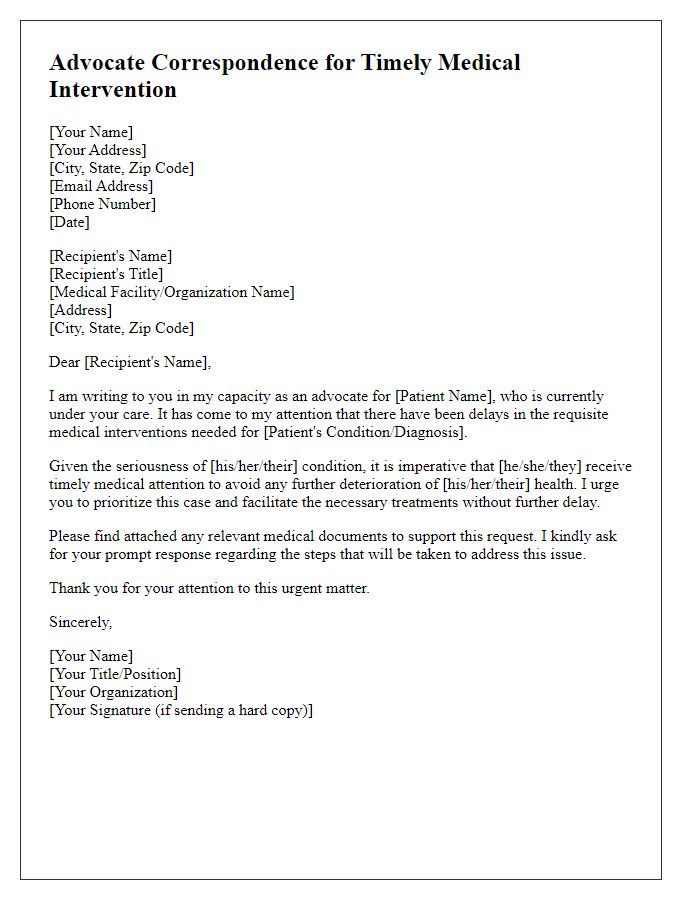

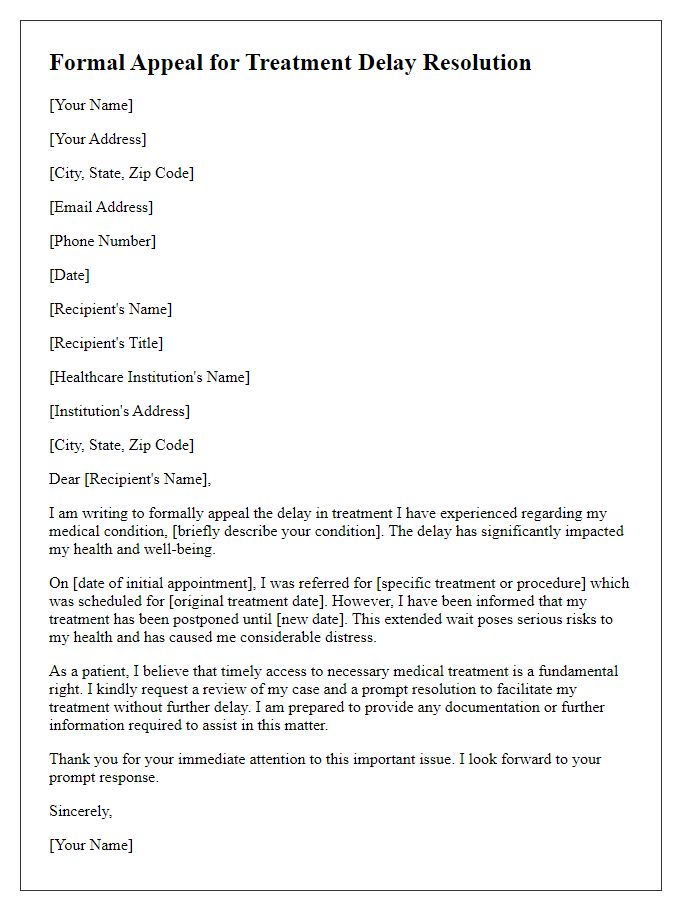
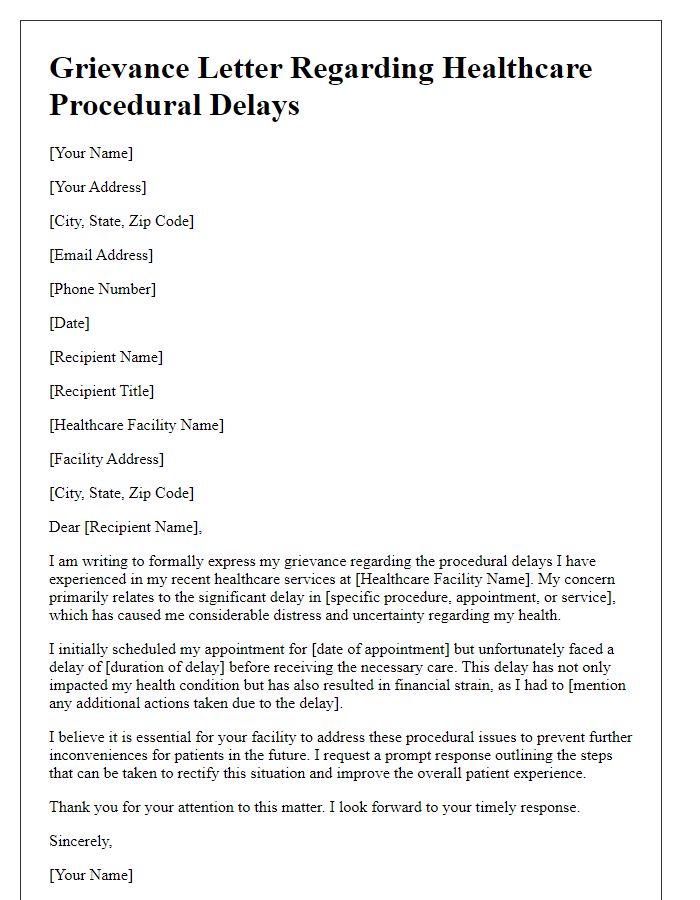
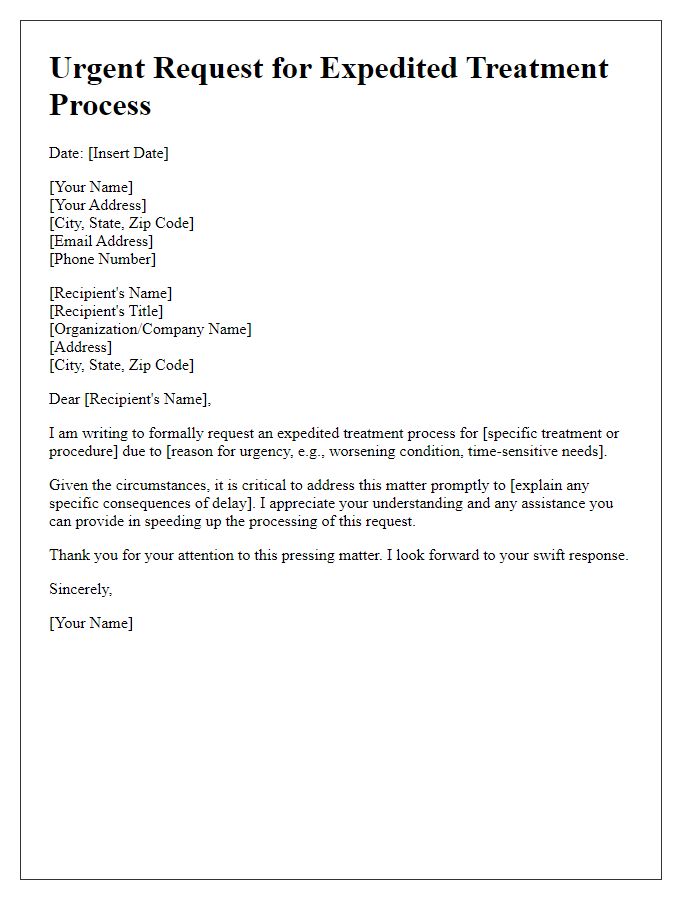
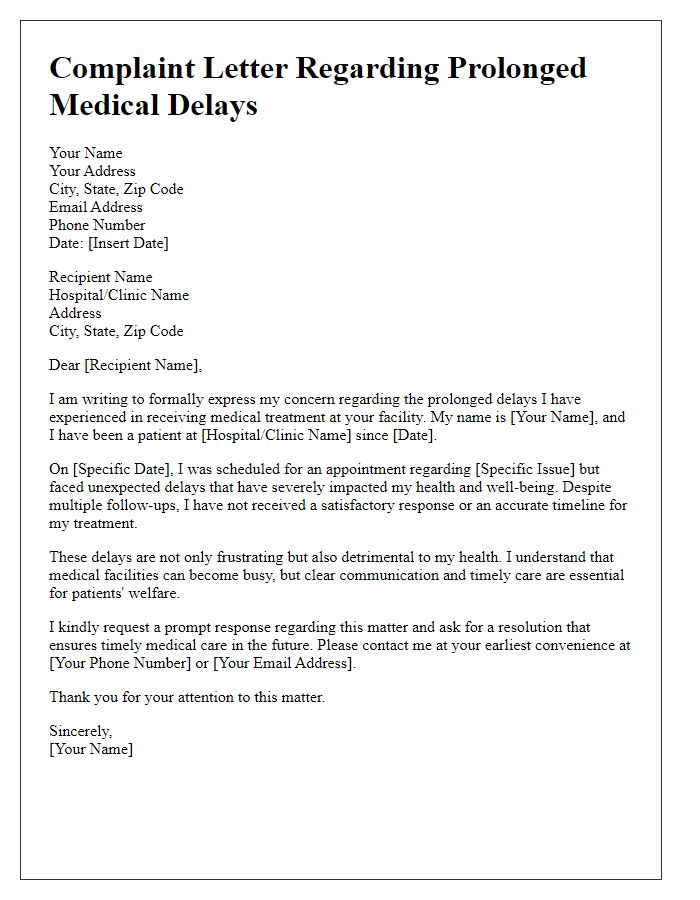
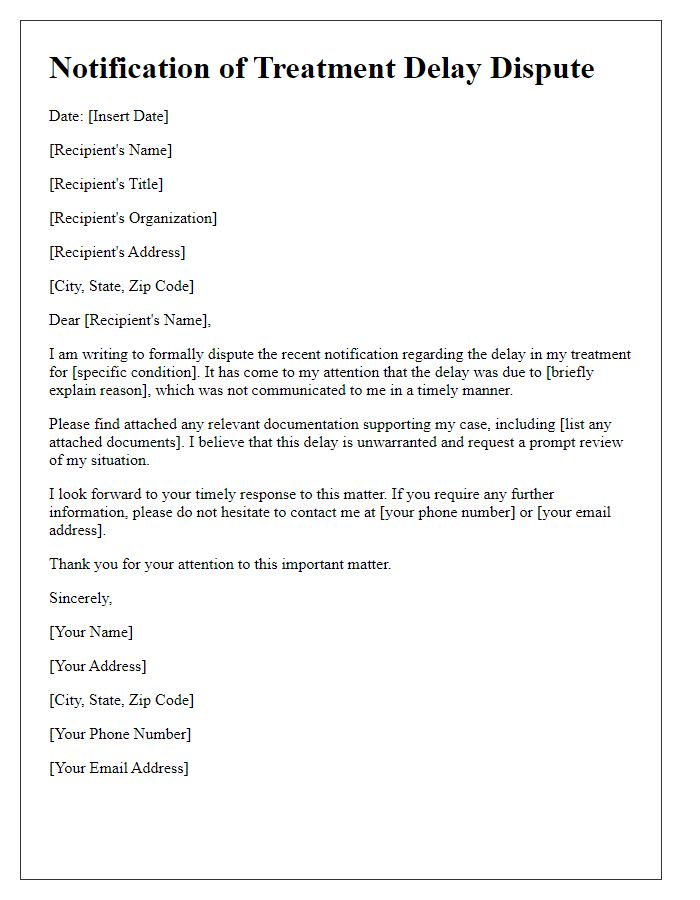
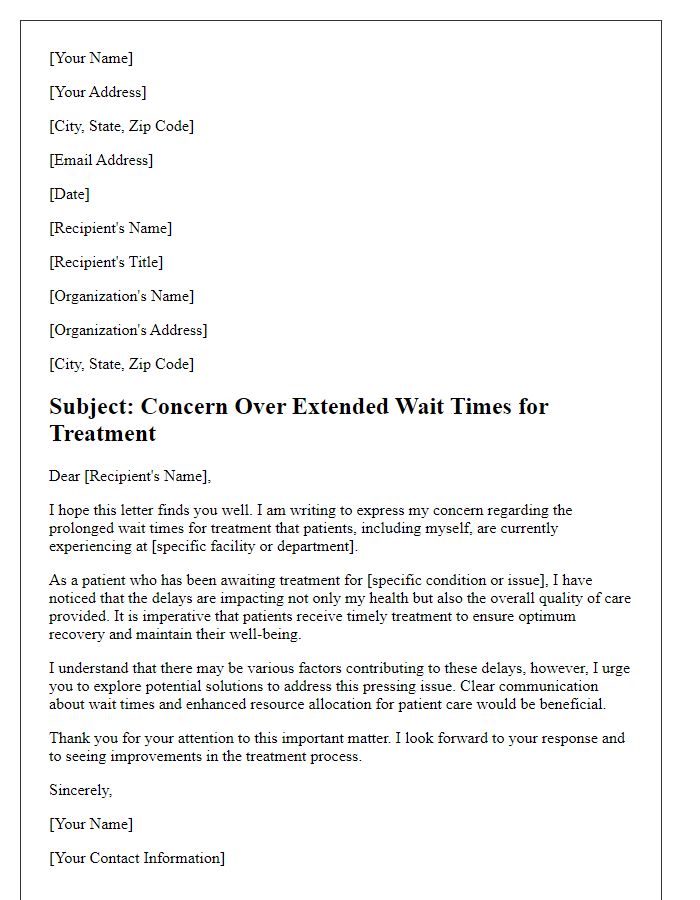
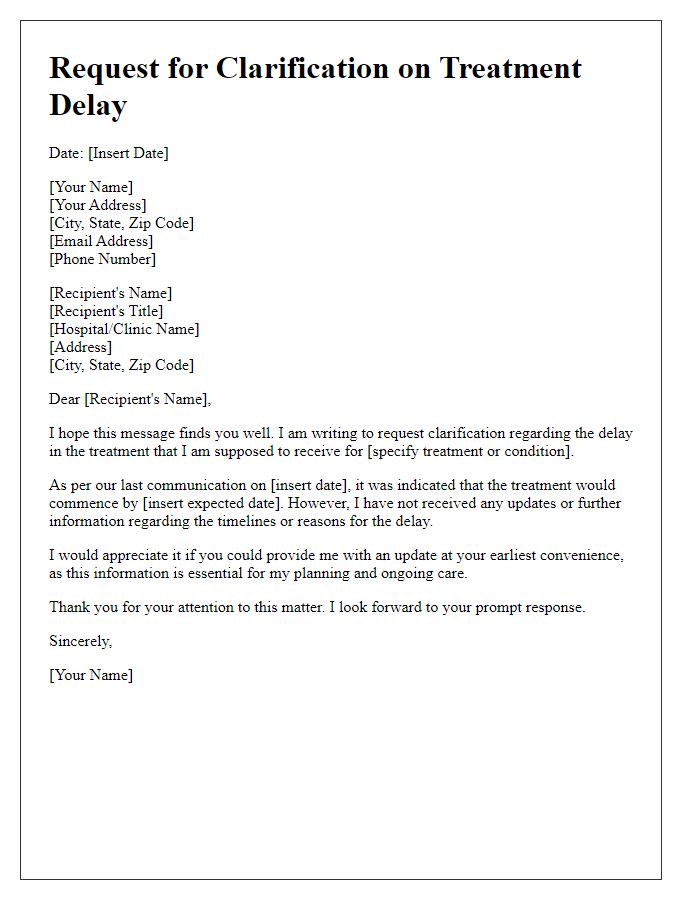
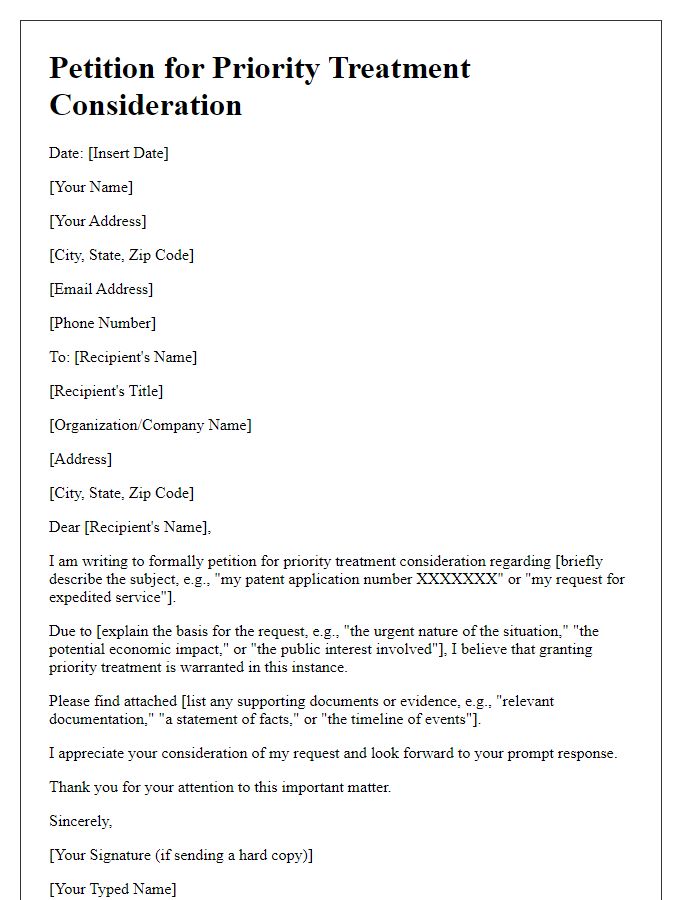
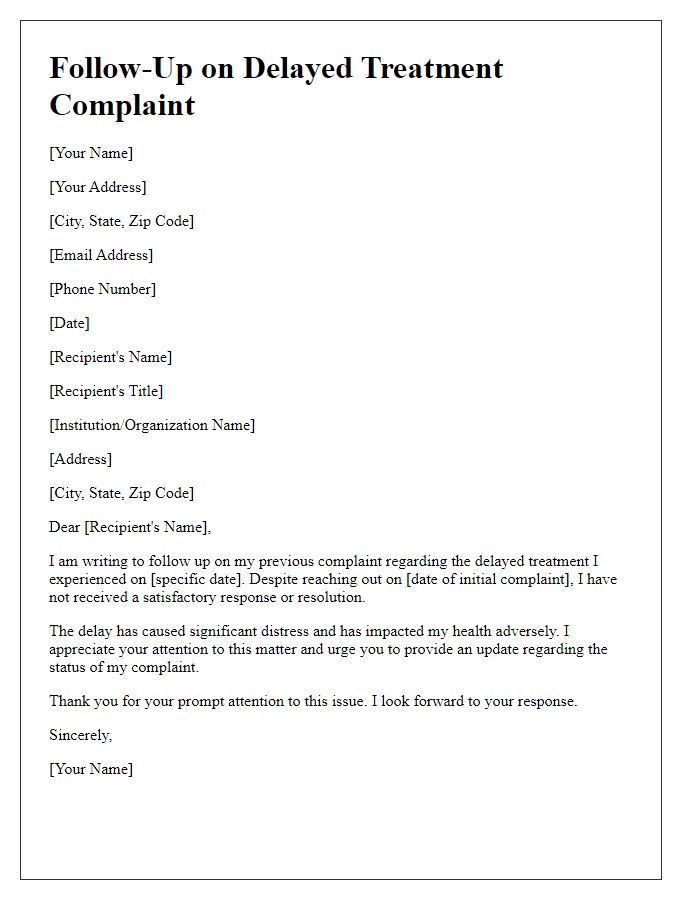


Comments